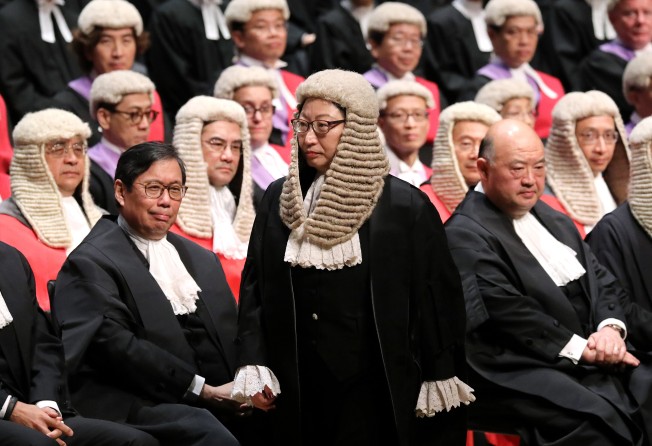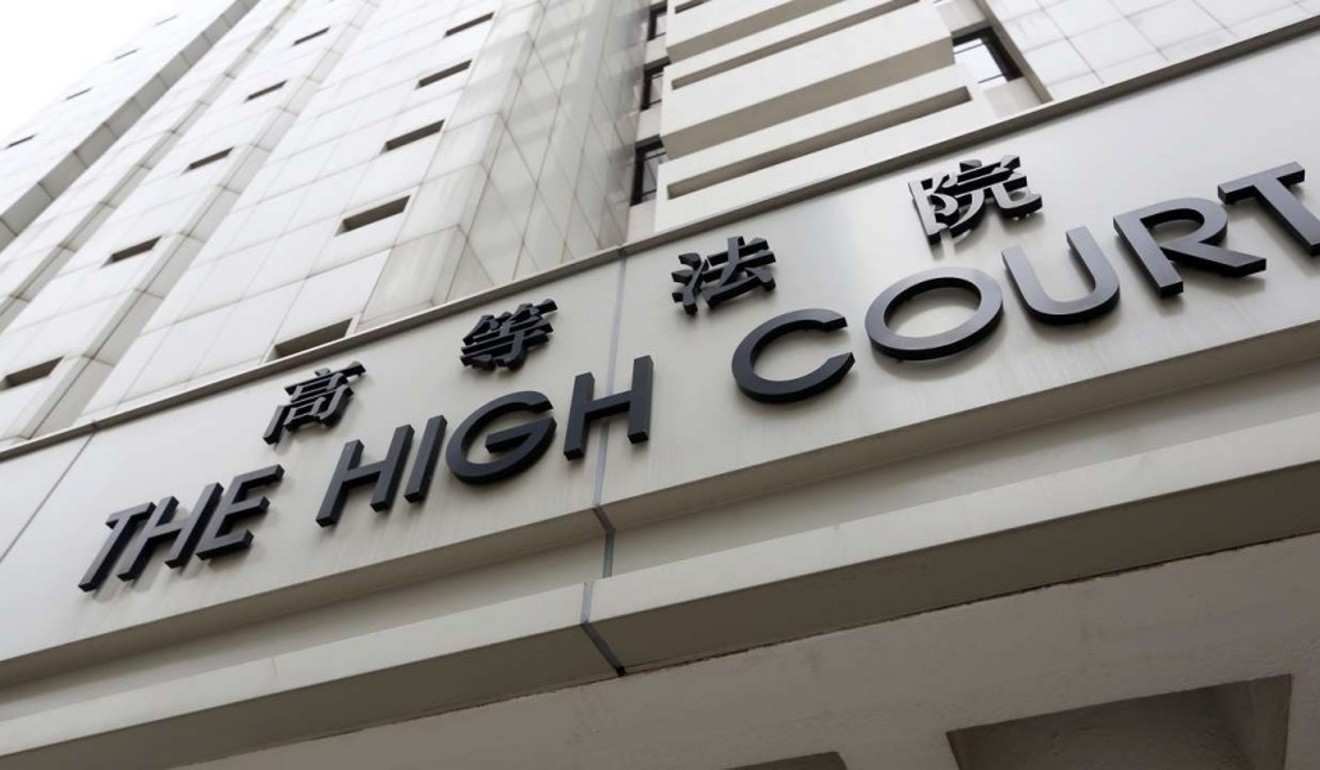
Senior counsels ‘should accept their public duty’ and help solve Hong Kong judiciary’s manpower crunch
Former Bar Association chairwoman Winnie Tam listed strict retirement policy and old High Court building among factors discouraging the most experienced lawyers from the bench

Despite a series of pay rises over the years, Hong Kong’s judiciary is still suffering from a manpower crunch, with 50 of the city’s 214 positions on the bench left vacant between last April and this March.
The shortage was most severe in the lower courts, with 36 of 109 permanent magistrate positions unoccupied, compared with 31 vacancies in the previous 12-month period. At the High Court, seven out of 34 posts were not filled, the same as the previous year, according to a government paper submitted to lawmakers last week.
Justice Mohan Bharwaney, who was a senior counsel before he became a High Court judge in 2011, said despite higher pay and the practice of reappointing retired judges for shorter periods, the judiciary was “very far away” from tackling its manpower shortage.
“It’s a function of economics, because the senior counsel who are fit and proper to be appointed to the High Court are earning so much money in practice,” Bharwaney said.
The paper showed that High Court judges earn upwards of HK$292,650 (US$37,280) each month with those in the Court of Appeal earning upwards of HK$307,050. But top-tier senior counsel could earn more than double those amounts.

Bharwaney said that to get more established legal eagles to the bench, “it would be great if some senior counsels would wake up to the fact that you have to give back to the society which has given much to you”.
He described being a judge as requiring a “large element of public service”.
Two years ago, judges across the board were given a pay rise of 4.85 per cent with additional medical and other benefits but legal experts warned this would do little to close the gap.
They suggested other ways of ensuring a steady pipeline of judges, for example, by imbuing young lawyers with a sense of duty, so they would aim to join the bench later in their career.
Former Bar Association chairwoman, Winnie Tam Wan-chi, who was previously a deputy High Court judge, said restricting retired judges from returning to private practice could put off talented individuals.
She added however that she supported the current restriction, which was important to maintain a credible judiciary.
“It is a pity to retire someone at the age of 65 and not give them any way to return to the legal profession and practice,” Tam said. “With such an abrupt ending to one’s professional life, many would be hesitant to join the bench.”

Tam said the High Court building, which was over 30 years old and had a shortage of courtrooms might also be a factor, as most experienced lawyers would want to work in a place with “more pleasant facilities”.
The Legco paper also revealed a mixed report card for the judiciary’s performance in processing court cases.
Last year, defendants whose criminal trials were at the District Court found themselves waiting an average of five months between the first mention of the case and the start of the hearing, two months more than the year before. This was because more District Court judges were sent to the High Court to hear criminal appeals.
And while the average time taken from the filing of criminal charges to the first hearing at the High Court was reduced by half from almost 10 months to just over five months, it still fell short of the judiciary’s service pledge for the process to take 120 days.
In general, waiting time for civil trials to begin also increased, but the courts showed improvement in the time taken to conclude commercial and civil trials and hand down verdicts.
However, this was not the case for tribunal and miscellaneous appeals, including judicial reviews, with courts taking an average of two months last year to deliver judgments, up from 36 days the year before.
The paper noted the Chief Judge of the High Court was “fully aware of the situation … and is making every effort” to give judges more time to write their judgments, in view of the manpower shortage, while balancing this with the need to process cases within a “reasonable” time frame.